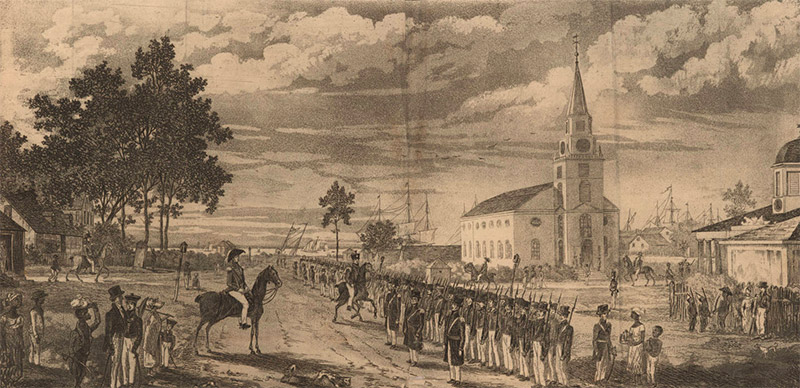The History of El Dorado: British Guiana Since 1600
Charles Dimont traces the establishment and development of Britain's South American dependency.
 “The empire of Guiana hath more abundance of gold than any part of Peru,” wrote Sir Walter Raleigh in 1595. In the streets of its capital, El Dorado— “the City of Gold”—the precious metal lay like “wood marked out to burn.” The Inga, or Emperor, lived in a gold palace, furnished with gold chests bound with gold ropes, and gold wardrobes stuffed with gold statues. He walked in gardens planted with gold trees and gold flowers. He and his subjects even relaxed in a golden manner: they intoxicated themselves and stayed drunk for six days at a time.
“The empire of Guiana hath more abundance of gold than any part of Peru,” wrote Sir Walter Raleigh in 1595. In the streets of its capital, El Dorado— “the City of Gold”—the precious metal lay like “wood marked out to burn.” The Inga, or Emperor, lived in a gold palace, furnished with gold chests bound with gold ropes, and gold wardrobes stuffed with gold statues. He walked in gardens planted with gold trees and gold flowers. He and his subjects even relaxed in a golden manner: they intoxicated themselves and stayed drunk for six days at a time.





